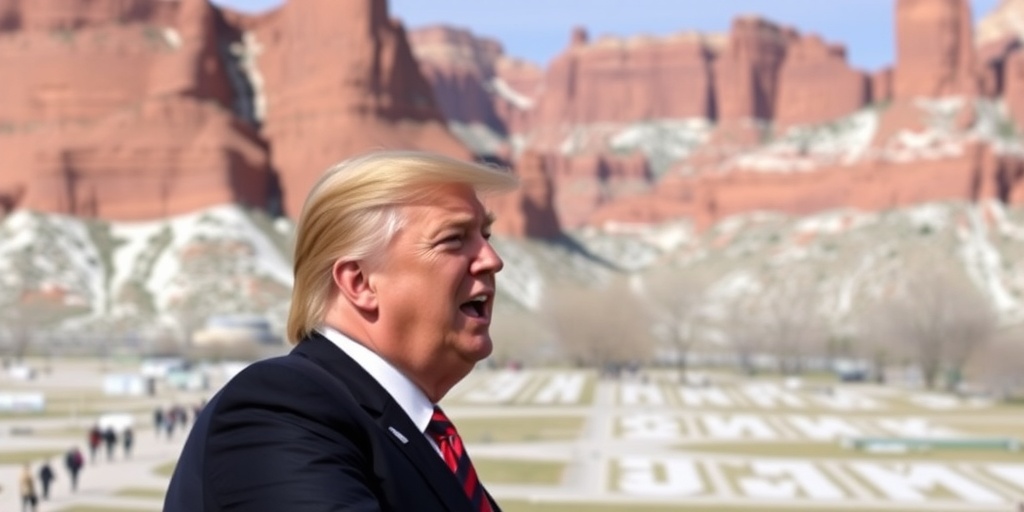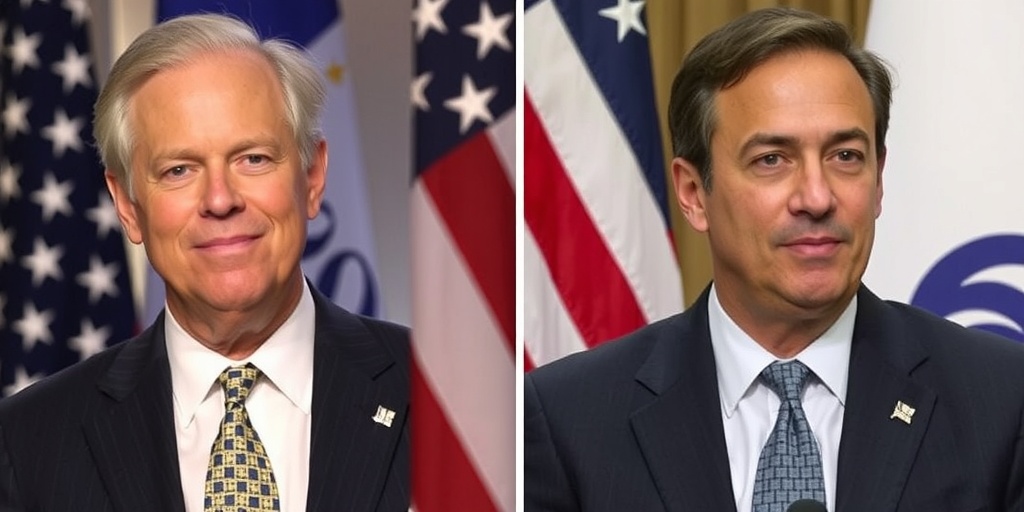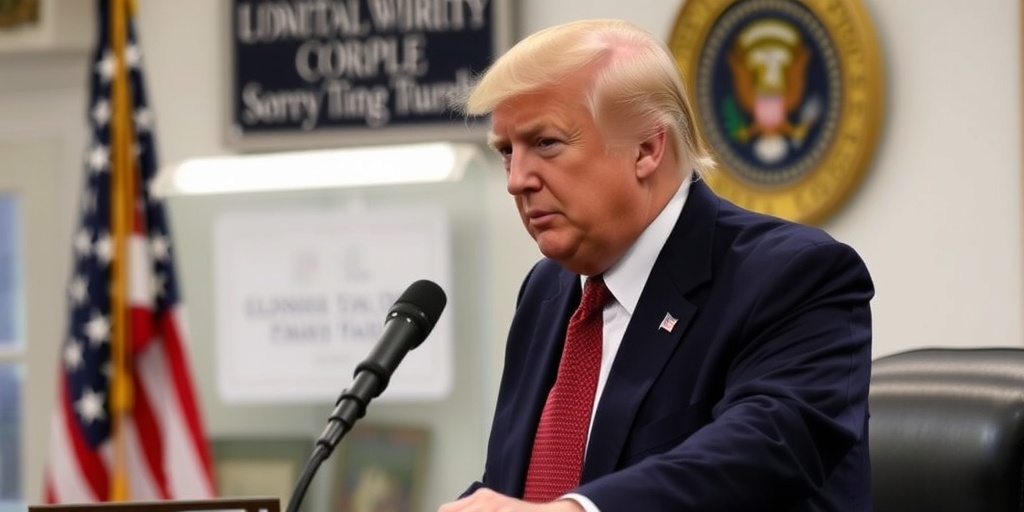Now Reading: Utah: A GOP Stronghold Still Resisting Trump
-
01
Utah: A GOP Stronghold Still Resisting Trump
Utah: A GOP Stronghold Still Resisting Trump

A Shift in Utah Politics: Emphasizing Civility Over Partisanship
In a surprising turn of events within the traditionally Republican state of Utah, a renewed political movement is emerging that prioritizes civility and problem-solving over the often divisive partisanship seen in national politics. This shift marks a significant departure from the rhetoric typically associated with former President Donald Trump’s administration, signaling a more moderate and compassionate approach among Utah Republicans.
A newly established political-action committee, spearheaded by a former Republican state legislator, Becky Edwards, is endorsing candidates who exhibit a commitment to civil discourse rather than strictly aligning with their party’s platforms. Edwards, who previously challenged a close Trump ally, Senator Mike Lee, in a 2022 primary, is leading the charge to support candidates based on their willingness to engage in respectful conversations and promote constructive solutions to pressing issues.
The backdrop for this political metamorphosis lies in the changing demographics of Utah, particularly among members of the Church of Jesus Christ of Latter-day Saints (LDS). Historically, the LDS community has been a staunch supporter of the Republican Party, but recent trends indicate a growing disillusionment with the GOP. Political analysts note that this shift has been partially fueled by the church’s condemnation of Trump’s divisive language regarding immigrants and women. In fact, Latter-day Saint voters played a pivotal role in flipping Arizona—a crucial swing state—for the Democratic ticket in 2020. Nationally, support for the Democratic Party among L.D.S. voters rose from 23% to 31% in the last election cycle, as reported by a Fox News analysis of Associated Press VoteCast data.
Despite President Trump’s continued popularity in Utah—where he won by a margin of 21 points—center-right Republicans are mobilizing to shift the political landscape in a more civil direction. This effort has gained traction, particularly among those aligned with former Senator Mitt Romney, a notable critic of Trump. These moderate Republicans aim to pull the state’s voter base away from the more aggressive rhetoric of the MAGA (Make America Great Again) wing.
One notable initiative fostering this transition is the Governing Group, a political-action committee founded in 2023 by Edwards. With a modest budget of approximately $350,000, the Governing Group has managed to make a significant impact at both state and local levels, endorsing 28 candidates in the most recent election, of which 25 emerged victorious. The group’s emphasis on civil discourse is resonating with an electorate weary of the polarization that defines much of America’s current political climate.
This drive toward civility is also being reflected in ongoing gerrymandering battles. In a landmark decision last year, the Utah Supreme Court ruled that the Legislature had violated the state constitution by overriding a voter-backed initiative aimed at creating an independent redistricting commission. This ruling has opened the door for a possible redrawing of congressional maps, which could yield a competitive House district—an outcome that many hope will usher in a new era of fair representation for the state.
Furthermore, influential figures like former Governor Gary Herbert are advocating for a return to moral character in political discourse. During recent engagements, Herbert emphasized the importance of treating opponents with respect and acknowledged that harsh rhetoric does little to address the nation’s pressing issues. He is also involved with the Dignity Index, an initiative that grades politicians based on the civility of their speech, aiming to foster a healthier political environment.
Still, the path forward is not without challenges. While some Utah Republicans openly critique Trump, others, like Senator John Curtis and Governor Spencer Cox, have maintained ties with him, complicating the state’s political narrative. Curtis has expressed his willingness to diverge from Trump’s ideology, but he has yet to oppose many of Trump’s controversial policies outright. Similarly, despite Cox’s criticisms of Trump’s approach, he endorsed the former president last summer.
Interestingly, even among younger Republican voters at Brigham Young University, an undercurrent of dissatisfaction with the current political discourse is becoming apparent. Students are increasingly exposed to messages emphasizing hope and respect, which they find starkly different from Trump’s often fear-driven narrative.
The changing politics in Utah not only reflect a state responding to its internal demographic shifts but also reveal a growing appetite for a political dialogue rooted in civility and cooperation. As the Governing Group and other initiatives gain traction, Utah could become a model for how political engagement can be reshaped to foster inclusivity and respect, challenging the notion that partisanship is the only path forward in American politics.
Stay Informed With the Latest & Most Important News
Previous Post
Next Post
-
 01New technology breakthrough has everyone talking right now
01New technology breakthrough has everyone talking right now -
 02Unbelievable life hack everyone needs to try today
02Unbelievable life hack everyone needs to try today -
 03Fascinating discovery found buried deep beneath the ocean
03Fascinating discovery found buried deep beneath the ocean -
 04Man invents genius device that solves everyday problems
04Man invents genius device that solves everyday problems -
 05Shocking discovery that changes what we know forever
05Shocking discovery that changes what we know forever -
 06Internet goes wild over celebrity’s unexpected fashion choice
06Internet goes wild over celebrity’s unexpected fashion choice -
 07Rare animal sighting stuns scientists and wildlife lovers
07Rare animal sighting stuns scientists and wildlife lovers





















